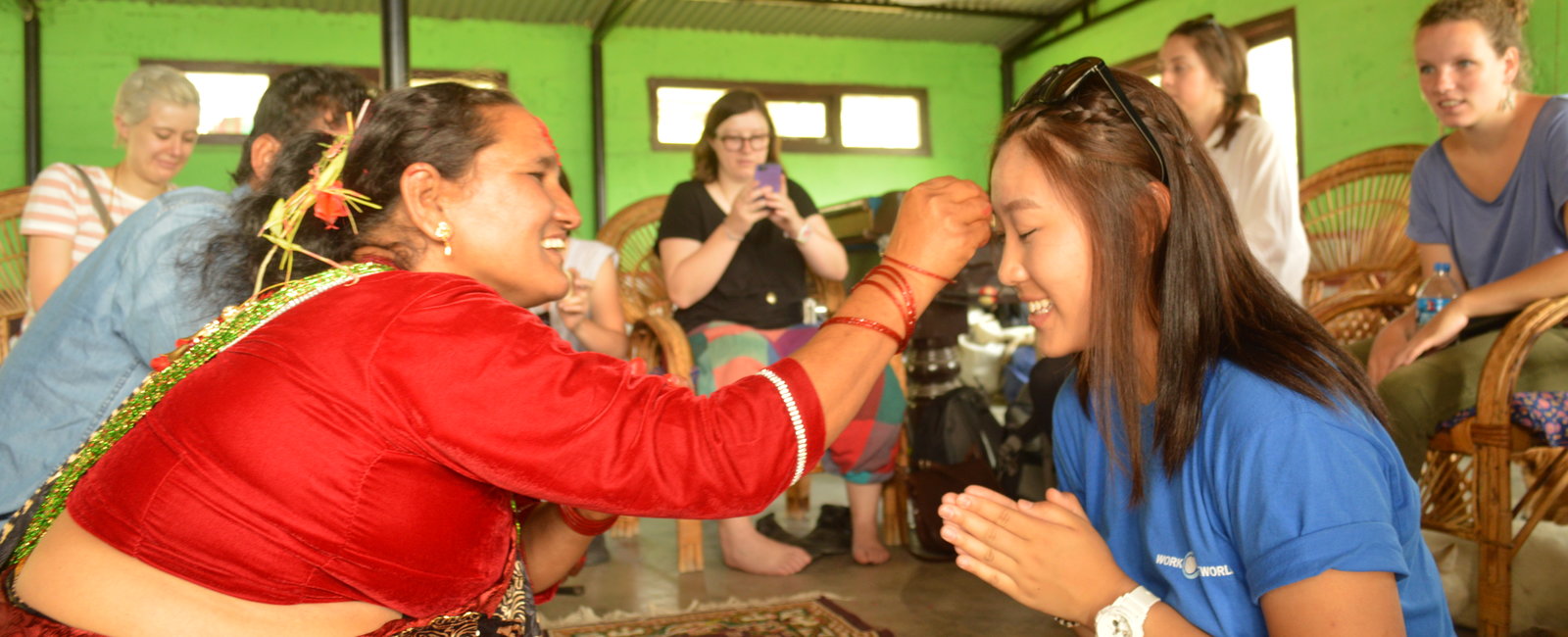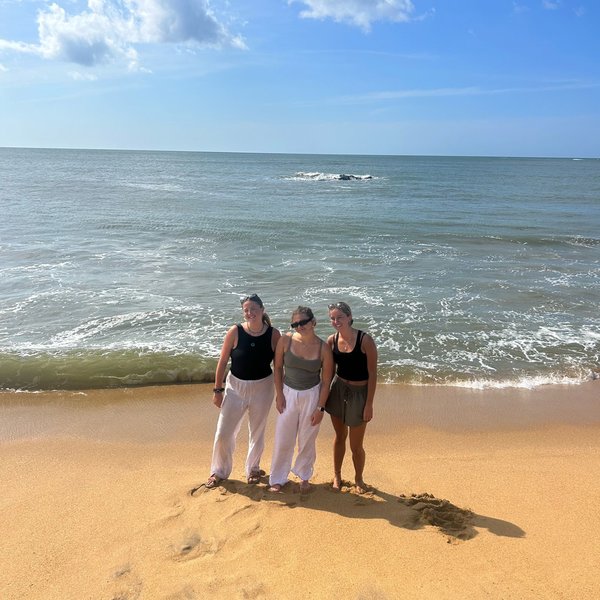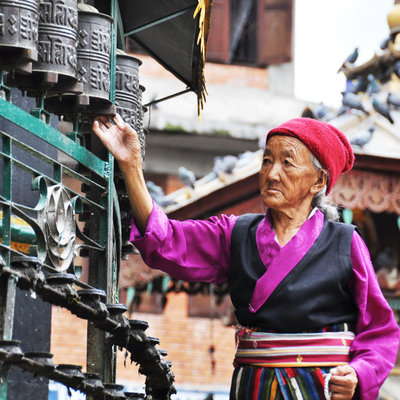University of Adelaide 2018
As the plane flew in over Dar es Salaam, I could tell that I was entering a whole new world. Red, blue and green roofs of small houses stretched out across the green expanse beneath. The image was a stark contrast to anything I had seen flying into Australia.
Dar es Salaam’s international airport had just four gates, and its customs hall seemed to have no conception of order. Despite the initial culture shock, not to mention the stifling humidity, Tanzania was only just beginning to show me the raw culture that I came to love.
In the lead up to my trip, Work the World were excellent in providing information on the trip through the MyTrip planner and phone calls to help get prepared. There was still, of course, an element of nervous excitement as I was travelling somewhere I’d never been to before.
Any fears I still had, however, were allayed as soon as I met a member of Work the World’s Tanzania team at the airport. She was immediately recognisable in her blue Work the World t-shirt, with a welcoming smile and (much-appreciated) bottle of cold water. She was just one of the friendly staff members I became close friends with at the Work the World house. From the security team’s crazy dancing skills, to our catering team who looked after us in the kitchen, I was never lonely during my stay.
Another group of people who made my stay comfortable were my housemates. Sharing a house with strangers from around the world was daunting to begin with, particularly for someone like myself who is on the more shy side. However, as I climbed out of the taxi for the first time and met two of my new housemates on the front porch, I got the feeling that we were going to get along well. It’s strange to think it was possible to make lifelong friends from spending just a few short weeks together.
My housemates and I travelled Tanzania together during weekends, played endless card games in the evenings, and even cooked Christmas dinner together. Everyone was so willing to get involved and support each other in what, at times, was a very different world from what we were used to.
My hospital placement was the most challenging aspect of the trip. But, it was an experience that I wouldn’t have wished to be any other way. When deciding which of Work the World’s destinations to choose, the team were exceptionally helpful with recommending an area based on my interests. This included the opportunity to see some procedures that I, as a third-year student, had not been able to fully experience back at home.
My placement more than met my expectations. The clinic I spent time in was small, but the number of patients pushed through in the first two hours of each day was like nothing I’d ever seen back in Australia. A lack of prevention and early intervention meant almost all patients presented only when in severe pain.
Time in the clinic was sometimes challenging due to the language barrier, but local people always offered a smile and thanked me for my help, regardless of how many hand gestures it took to understand one another. The staff at the clinic all spoke wonderful English. They were so welcoming and appreciative of my willingness to learn and participate, that it made up for any challenges I faced.
Supplies at the clinic were incredibly limited, but gloves, masks and alcohol gel that I brought with me helped. One of the most important lessons I learnt from working in such a resource-poor environment was to do whatever it took to get someone out of pain, regardless of the situation.
At first, I was shocked by the way in which patients were treated. Children were often physically restrained during treatment, and there seemed to be a complete absence of the patient-centred care that we had drummed into us back home in Australia. But I soon began to realise that this was primarily due to the underlying need to deliver care.
There are no options for sedation, no time to sit and discuss patients’ oral health, no resources to do anything other than to alleviate immediate pain. But that was all patients expected, and they were so grateful for the help regardless of the distress they may have been caused during the procedure.
The resilience of the patients—and the people of Tanzania in general—astounded me.
We saw and treated a patient who had Ludwig’s angina. The gentleman was around my age and in an incredible amount of pain. Despite this, he came back every day, gritting his teeth as we drained pus from the site, bathed the wound from the incision through his cheek and then bandaged him up again for the next 24 hours. In Australia the patient would have been hospitalised, with a tube to drainage of the infection. There were no strong pain killers, no neat non-stick dressings, so the man had a weeping hole in the side of his face for weeks. Regardless, he always smiled hello and bore the pain with admirable stoicism.
This stoicism was even more evident during the Work the World Village Healthcare Experience week in a rural village. The nearest hospital was nestled among mountains and sugar cane plantations. Despite the beautiful surroundings, a quick tour of the hospital and village showed us that the local people had very little of anything. The maternity ward, for example, had only two examination tables that doubled as beds.
In the hospital, one mother had to endure the stillbirth of her child. Less than 24 hours later, she slept, without so much as a frown, in the room adjoining new mothers with their crying babies. It was heart-wrenching, yet humbling. It made me appreciate how these remarkable people seemed content with next to nothing in the face of relative adversity. On our way home from placement each day, there was a stream of local children running barefoot behind us, faces bright with excitement at the chance to play with the foreigners.
From safari in Mikumi National Park, to the paradise island of Zanzibar, there were so many amazing things to see and do during the weekends. The team at the Work the World house were always happy to give us recommendations for the best places to go in and around Dar es Salaam and Tanzania more broadly. I would suggest taking them up on these; they know what they’re talking about!
My main piece of advice is to go with the flow and openly embrace the Tanzanian culture. It will be like nothing you have ever experienced before. You’ll cry, miss out on sleep, and probably never want to catch another bus again, but you’ll meet inspiring people and make lifelong friends, see incredible places, and have some of the most insane fun you’ve ever had.
I cannot recommend this experience enough. Not just for the feeling of immense satisfaction, nor just the valuable life lessons that you learn along the way, but also for the rich culture, lovable and charming character of the Tanzanian people.









